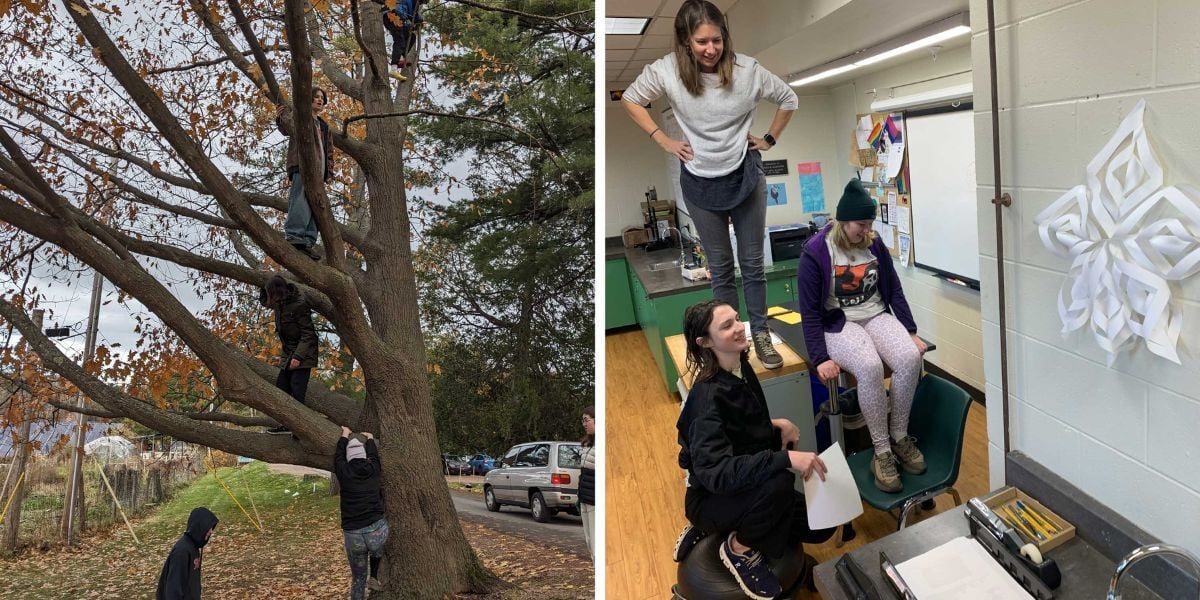How Friction Fosters Connection and Builds Community
In an age where “frictionless” conveniences like instant deliveries and AI interactions promise to make life smoother and easier, a lesser-known cost...


This time of year, many of our students and families are planning for the summer. As the weather warms up, our students are already anticipating sunny summer days with fewer responsibilities and the possibility of sleeping in. While having time to relax and to take a break from the rigors of the school year is important, we also know that having some kind of structure in place during the summer helps keep our students on track to be successful in the following school year.
There have been many studies confirming the summer learning loss, or the fact that many students fall behind two or more months in the summer, causing the need to relearn material in the fall. Does this mean that you have to enroll your child in summer school? Not necessarily. Below, are some ideas on how to help your teenager retain their skills, gain some life experience, and enjoy their summer.
Get a Job
Many of our students are excited at the prospect of getting a job for the summer. The idea of making their own money and having more independence is appealing. However, students often run into a couple of snags in their job searches. First, many employers do not hire people under 15 or 16, and the jobs teens of that age are able to get are not always desireable. Second, some teens have plans to get a job, but start looking too late. Third, seasonal work goes quickly and can be tough to find in many locations because high school students are competing with college students for summer employment.
If your teen is interested in getting a job, it will be important to help them write a resumé and cover letter. It may seem silly to a fifteen year-old to write a resumé, but remind them that the clubs or sports they participate in are valuable experiences, as are any more informal jobs such as babysitting or helping an elderly neighbor shovel their driveway. At our school, students gain valuable job experience on work crews, assisting with admissions, participating in project-based-learning, and helping to organize and run our many community events. There may be supports at your teenager’s school to help them in the job search. At Rock Point, students often work with their advisors to search for jobs, fill out applications, and get coaching on interviews. Our guidance counselor and English teacher also help students write resumés, cover letters, and requests for recommendations.
If your child has a strong interest in a career or area of study, it may be worth seeing if a volunteer job or internship is available. For example, we have had a number of students who are passionate about animals, and they gained valuable experience by volunteering at the Humane Society, when they could not get a job working at a vetrinary clinic. While this kind of work won’t bring home a paycheck, it can be extremely rewarding and educational.
Being employed or volunteering will provide some structure to your teen’s summer, could encourage healthy sleep habits, and will help them increase their competency and independence. However, depending on the job, it may not prevent the summer slide in reading and math skills. So, you may ask them to add a reading list to their summer plans, along with doing some online SAT math practice. Alternatively, they may also have time to take a summer class.
Summer Education
Another great option for teens in the summer is to find a class or two to take. Many colleges will have classes that are open to high school students, and some will even award college credit for the work! Vermont and other states have dual enrollment programs, allowing in-state students to take college classes and earn credit toward high school, while also gaining college credits. This is also a great opportunity for your child to take classes that might not be offered at their high school.
Taking one class over the summer can also relieve some pressure for students to take a full load of classes during the school year, when they also may want to participate in time- consuming extra curriculars, such as a varsity sport or a drama program. It can be a good opportunity for students to take a difficult class without the distraction of other classes and activities.
It’s all about balance
The best kind of summer plan for your teenager is one that has a balance of fun downtime with some educational experiences.
For some students this might mean taking a class and spending time with friends at the beach. Other students might want a more structured option. Attending a summer camp or program that has an academic component, while including outdoor adventures and creative activities can be a great way to maintain structure over the summer and prevent “summer loss,” while still having fun.
The support of a full summer program can be great for students who like to have consistency and who might otherwise spend the summer saying “I’m bored!” At our summer program, students appreciate having the opportunity to try a variety of activities, some of which they never would have tried on their own. When students participate in Rock Point’s summer session, we see them return to school with new skills, prepared and excited for the school year.
Other resources for summer plans:
Habitat for Humanity Youth Programs - Habitat offers volunteer opportunities for youths around the country. You can check here for one near you!
Outward Bound Programs - You can find courses in leadership and outdoor adventures for ages 13+
YMCA Camp job openings - YMCA camps offer jobs all around the country and are a great way for teens to gain working experience, while still having fun outside
List of Arts Summer Programs - a list of various summer arts programs for high school students around the country
In an age where “frictionless” conveniences like instant deliveries and AI interactions promise to make life smoother and easier, a lesser-known cost...

As we are heading into our vacation, I am thinking about a student at Rock Point from many years ago who really struggled to get back into the school...

Every quarter, students choose from several electives, which meet three times a week to supplement the curriculum and provide a fun way to start...